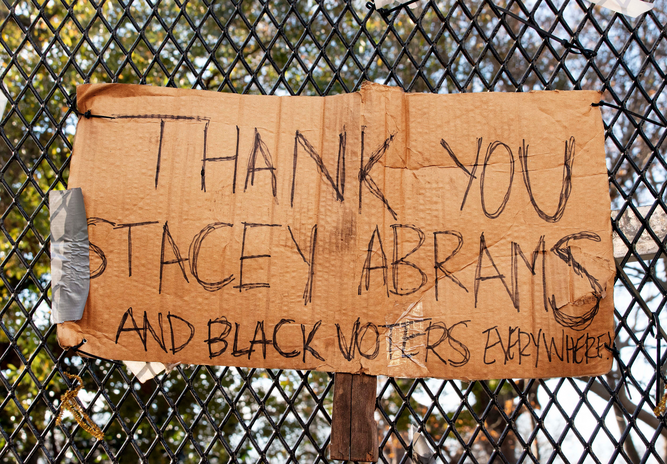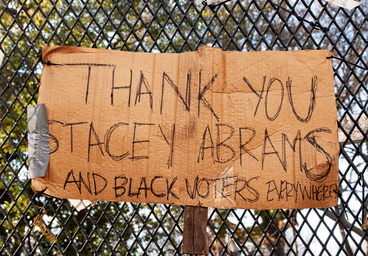Leading into election season, Stacey Abrams became a trending figure, both for questions of voter suppression (which maimed her campaign in the 2018 election for Georgia’s governorship) and the importance of Black women in politics. I was immensely excited by this; I’d spent a lot of time in my history classes understanding the ways in which voter suppression has acutely affected Black voters for centuries, and I was interested to see how Abrams would use her own experience to tackle this longstanding issue.
Fast-forward to February 2021, and Abrams is widely credited for turning Georgia blue.

As a native Floridian now living in California, I’ve lived in various parts of the U.S. in my twenty years. My family currently lives in both Florida and Georgia, while my extended family lives in Alabama. My ties to the South made the turnout in Georgia this election even more thrilling.
When I moved to California, I was immediately enamored by the relatively stable political climate in the state (California is reliably blue during elections). In Florida, I was raised by a left-leaning mother, but I was often surrounded by right-leaning individuals. Politically, it was easy to feel at home in California. However, there is some underlying disdain for the South in Democratic strongholds, despite the clear importance of the South in the future of leftist politics. This issue, in my opinion, stems from two obstacles: age-old stereotyping of Southerners and a disconnect between the two demographics resulting from economic differences.
The South is often stereotyped as “racist” or “uneducated.” This just isn’t true. Let’s use Georgia as our example. To have this assumption about Southerners discounts all of the current political feats in the Peach State, such as Abrams’ voter suppression work and the election of Senators Raphael Warnock and Jon Ossoff. This also plays into coastal elitism, as it seems that those from the coastal cities can decide when to cut out an entire demographic of Black voices that one would hope to hear from.
I would also argue that, as many of my peers seem to be shifting to the left politically, an understanding of the plights of the South is incredibly important. I find that a lot of people who are beginning to identify with leftist politics seem to miss a crucial aspect of this ideology: economics. Many college-aged Californians are well off, financially. As a result, their approach to politics seems to align with the “socially liberal, fiscally conservative” view. When it comes to the “race versus class” issue, I believe that both are of importance and play off each other. One cannot be “socially liberal” and “fiscally conservative” because they are not separate entities. Therefore, if one was looking to support Black folks and outroot systemic racism, we also have to focus on economic inequalities in an equally critical light. This means understanding the ways in which the ruling class, which is often found in coastal cities, can affect the lives of the working class, which are often associated with the South.




